Classic interview: Nickelback take on their critics –“I don’t sit there thinking, ‘I hope we win over all these f**king hipsters who hate everything.’ They hate their own parents.”
As Chad Kroeger and Ryan Peake gear up for Nickelback's 10th album release, we go back a decade to when they were still proving their haters wrong
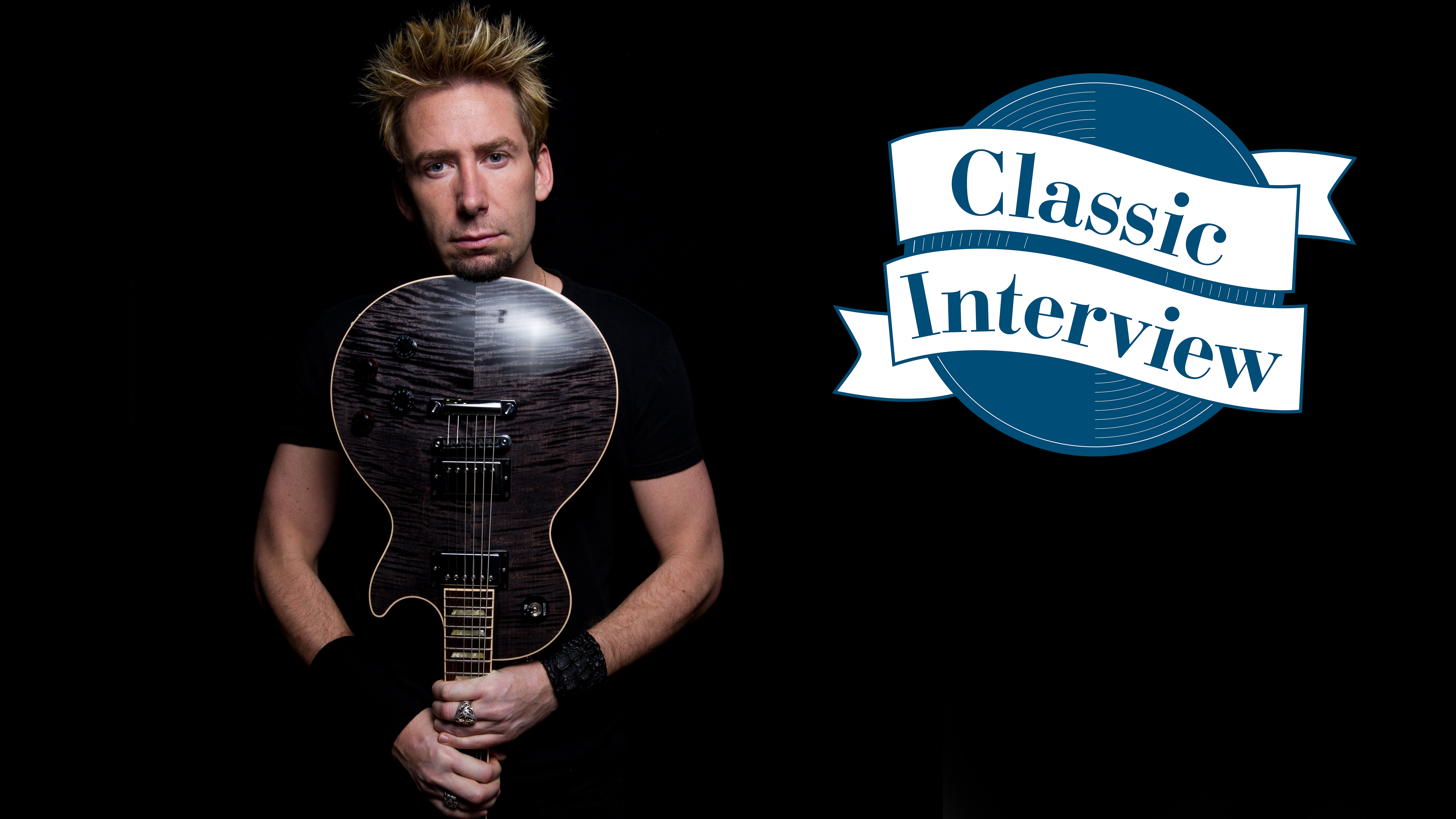
We revisit Total Guitar's 2012 feature with Nickelback's Chad Kroeger and Ryan Peake as they talk guitars, songwriting and getting a raw deal…
I don’t think we get any respect at all, whatsoever,” Ryan Peake sighs on being asked whether he and his Nickelback bandmate Chad Kroeger get the props they deserve as guitarists and songwriters for a band that has sold in excess of 50 million albums.
Love ’em or loathe ’em, this Canadian modern-rock juggernaut shows no sign of overturning, as demonstrated by the band’s recent sold-out run of UK arenas and their ranking as the second biggest-selling foreign artist of the noughties in the US (after The Beatles). And yet it’s difficult to find a band that polarises opinion more than Nickelback, seemingly adored and despised in equal measure.
What do they have to do to get their dues? And do they even care if they remain misunderstood, multi-platinum millionaires for evermore?
I got in a fight with my girlfriend and went downstairs and was strumming away and singing away these lines into the PA, cranking it so loud because I wanted her to hear me singing, ‘This is how you remind me of what I really am'
This complex love-hate relationship began back in 2001 when their mid-tempo, grunge-lite mega hit How You Remind Me (taken from third album, Silver Side Up) went stratospheric on both sides of the Atlantic. “That was me just plugging away on a few chords,” says Chad on penning that pivotal moment in the band’s career. “I got in a fight with my girlfriend and went downstairs and was strumming away and singing away these lines into the PA, cranking it so loud because I wanted her to hear me singing, ‘This is how you remind me of what I really am.’ It turned out to be our first introduction to the world."
If How You Remind Me was Nickelback’s first real greeting to the world, the response to the track could be best described as a mixed bag. The single swept into the Top 5 in the UK, but with this success came an almighty Nickelbacklash, a tidal wave of rock media-fronted spite that still flows strong today.
“Anybody who is successful is going to get that,” Chad counters. “I don’t sit there thinking, ‘I hope we win over all these f**king hipsters who hate everything.’ They hate their own parents.”
Get the MusicRadar Newsletter
Want all the hottest music and gear news, reviews, deals, features and more, direct to your inbox? Sign up here.
Going for a song
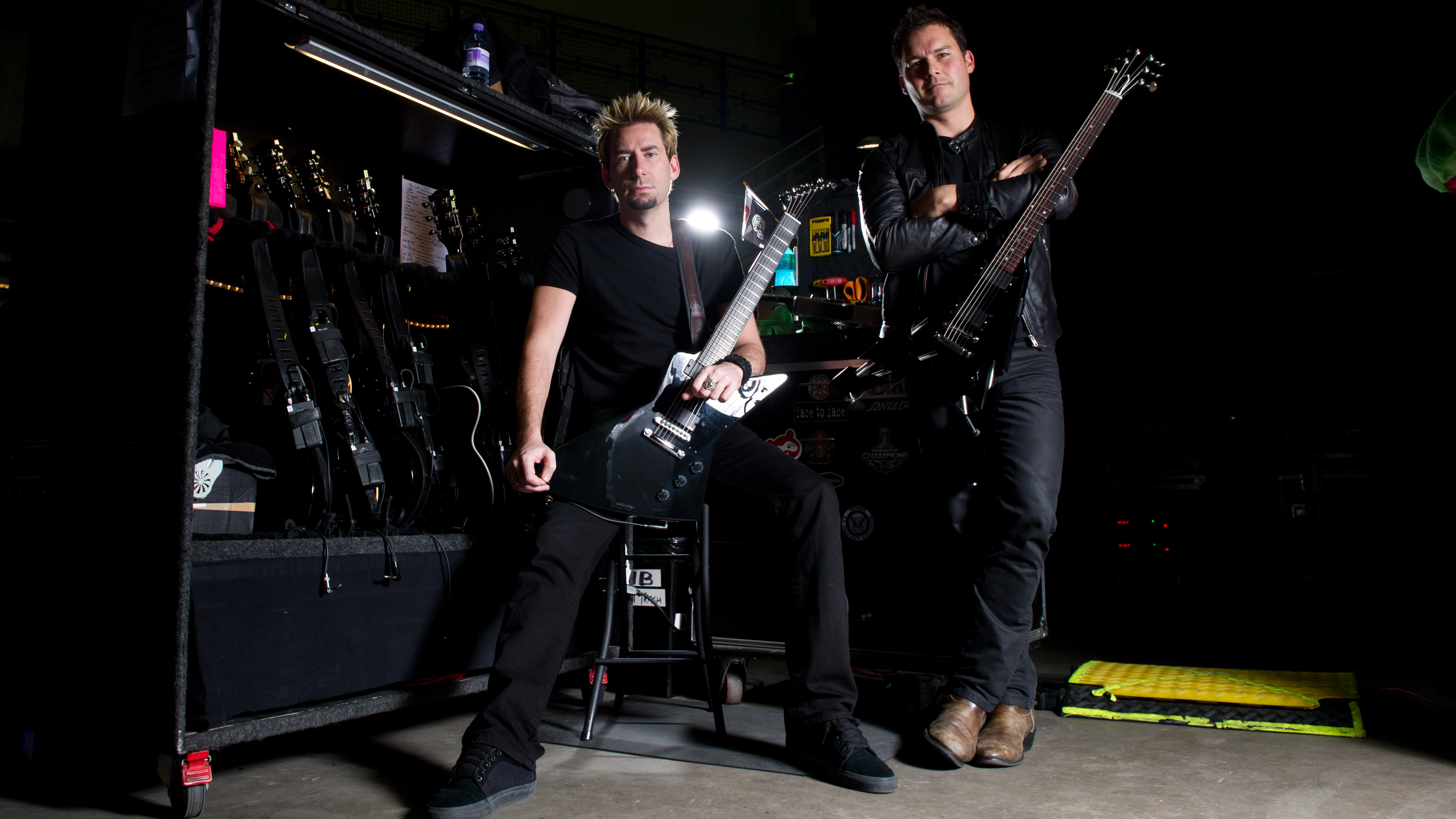
Whether the root of the Nickelback backlash lies with parent-hating hipsters or not is up for debate, but clearer is the fact that Chad and Ryan are due a tip of the hat as both guitarists and songwriters. While neither are straight-up shredders or soloists, both know exactly what their audience wants – to-the-point, riff-heavy pop-rock – and they deliver it in spades.
“We try to make every song the best it can be,” Chad suggests as a reason behind their huge audience. “We don’t have any eight-minute songs. These days, it’s really difficult to tell what’s going to take off, what’s going to click and what a listening audience is going to relate to, so we try not to handcuff ourselves in any way.
“It’s like, ‘This one part of the song is really good; it’s a shame it’s encompassed in an eight-minute diatribe of absolute bulls**t.’ So, we like to trim the fat in our material and leave ourselves with as many options as possible.”
In being as ADD as I am, we are our own worst surgeons
Chad Kroeger
Good singalong songs are exactly what they have, by the bucketload. Here And Now, the band’s seventh record, released in late 2011, spawned five singles, while a staggering 15 would-be hits were taken from 2008 effort Dark Horse and its 2005 predecessor All The Right Reasons. According to Chad, a short attention span has helped him find the golden touch for writing radio-friendly rock riffs.
“In being as ADD as I am, we are our own worst surgeons," reveals Chad, "because as soon as I get bored of something I say, ‘Okay, this one part doesn’t need to keep going round and round – let’s cut that in half and move onto the next part.’ We like things to be concise.
“I can’t really say that the attention span of people has shortened. I would say my own attention span has shortened. I’ll be sitting there, looking at a part, thinking, ‘I’m already bored of this.’ I enjoy the fact that we can sit and pay attention to details in all songs.”
All killer, no filler
While they may have been derided for pumping out records packed with commercial rock cuts, there’s something admirable about a band that turn in an album with almost every track ready to be sent out to radio. It’s a refreshing outlook in today’s one-hit-per-album iTunes climate.
“We don’t do the classic, ‘Okay, we’ve got two rock singles and a melodic single, a ballad or whatever and the rest is just album cuts,’ Chad stresses. “What is the point of recording that? Why not make sure all of the songs have the same amount of attention to detail to them?”
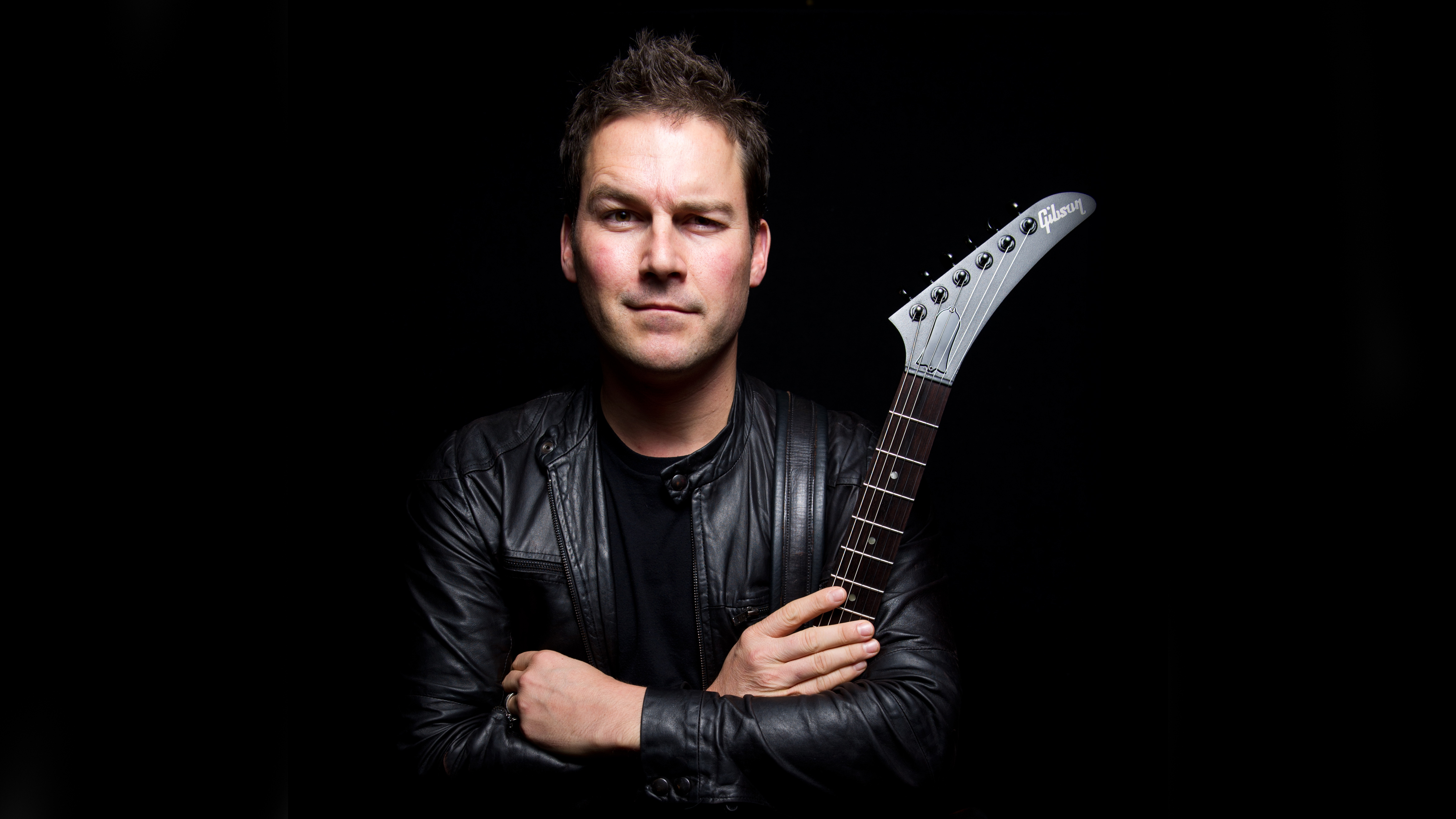
Chad is quick to point out the importance of variety in Nickelback’s guitar work, noting the dissimilar approaches taken by himself and Ryan.
“The thing I like most about Ryan’s playing is that it is totally different from mine,” he says. “We map things differently, even strumming patterns. If we were both the exact same kind of guitar player, I don’t think it would do us any good.”
Chad and Ryan are quick to point out that this deluge of potential hits doesn’t mean that Nickelback’s ethos has become diluted over the years. They remain an uncompromising rock band full to the brim with giant riffs and Empire State-sized hooks, and that starts with their writing process.
“There’s always a guitar present during the writing,” Chad says. “I am yet to sit down with a piano and write anything. I don’t think I’ve ever grabbed a bass for that matter and started plucking away – it has always been a guitar.
It’s always the melody accompanied with a six-string. I don’t think there’s ever been a time when someone has grabbed a f**king flute or a ukulele. ‘Hey, I’ve got this great ukulele riff!’”
If anything, the band’s attitude has become less mainstream-minded as time has passed, with Chad and Ryan keeping by-the-numbers rock at arm’s length. Their ever-growing obsession with tuning lower and lower is testament to that.
“When you’re in the studio trying to find a key that sounds good for the top range, if you’re screaming really high you move things down a bit,” Chad explains. “We start moving things around so the verses aren’t too low but choruses aren’t too high. We’ll stop, see where we are and then go get a guitar to suit that tuning.
You do wind up with a lot of different tunings [laughs]. You tune yourself into a corner. You don’t need just one guitar. You need two in case something breaks down, a string breaks, whatever it might be, you need to switch it out. So you need two guitars for each tuning and you wind up with a lot of guitars in the rack! And with a seven-string, we’re all the way down to A# for This Means War.”
No short cuts
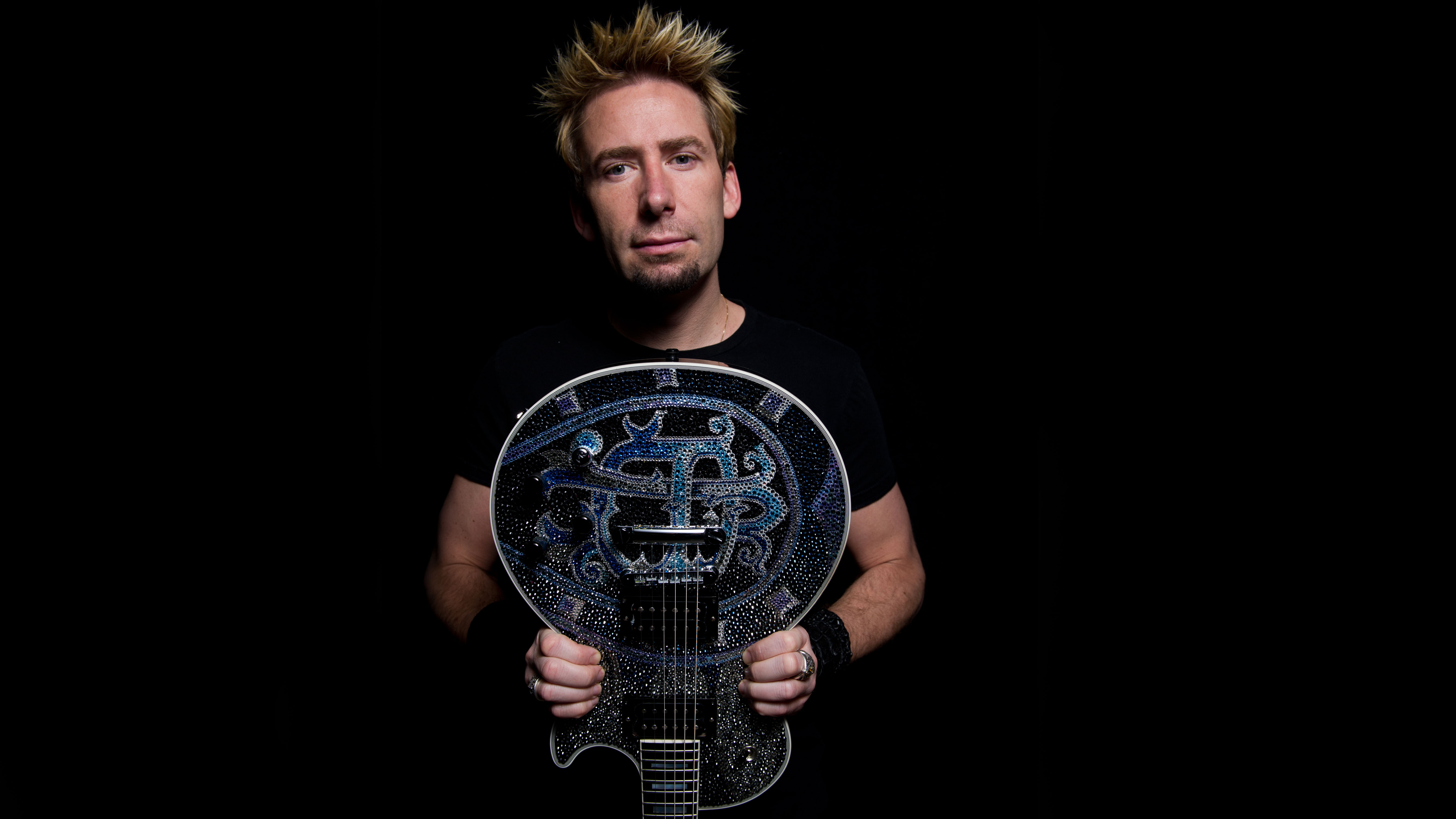
Ryan admits that his and Chad’s differing outlooks can lead to some confusion. “I remember Chad playing Burn It To The Ground down the phone to me. I’m in the grocery store and he says, ‘You’ve got to hear this, you’ve got to hear this riff.’ I’m listening to it on the phone, and I’m hearing it a beat behind how he is playing it, and I’m like, ‘That almost sounds like math-rock! That’s cool, that’s really cool.’ Then the voice comes in, and I get it and think, ‘Oh, that’s not nearly as cool!’ It was neat, but it just shows how I process things in a different way.”
Not only have Chad and Ryan stretched their songwriting legs by exploring alternative tunings, they’ve also successfully sidestepped churning out more of the same in the studio. “Every song is different,” Chad says. “Sometimes we’ll have a chorus idea, sometimes we’ll have a hook, a line, the title of the song, sometimes we’ll have a riff, a verse. It feels like the heavier songs we start with a riff; we have no idea where they’re going to go.
"The more melodic songs start with a main theme or a chorus, and the other pieces wind up fitting around that. It’s entirely different every single time we go at it. There’s no one set, ‘Okay, let’s go, follow step one, this is the recipe for making a Nickelback song.’ I wish it was that easy.”
While there’s no set formula for a Nickelback, the duo’s commitment – while knowing their limitations as players and connecting with their audience – is ever present.
“I don’t think I’ll ever be a guitar virtuoso,” Ryan admits as Chad shouts ‘Don’t give up!’ with a laugh. “In fact, I know I will never be a virtuoso, but I like to do what I do and get better at that, and that is helping make things that communicate to people. It’s that connection. It goes beyond what you’re making, because you start to feel that other people are going to feel the same way. That’s a part of songwriting that I like, making something that’s memorable.”
When we started playing, we didn’t do it to garner respect. We didn’t make albums to win awards
Ryan Peake
Huge hits How You Remind Me, Photograph, Someday and Rockstar show they certainly have the knack of penning memorable tunes, but still the guitar-community respect that comes so easily and readily to some eludes Chad and Ryan. Not that either is losing any sleep over it.
“I’ve never really cared,” Ryan shrugs. “Even going back to the garage days, you want to do something that people get, but when we started playing, we didn’t do it to garner respect. We didn’t make albums to win awards.”
A question of art
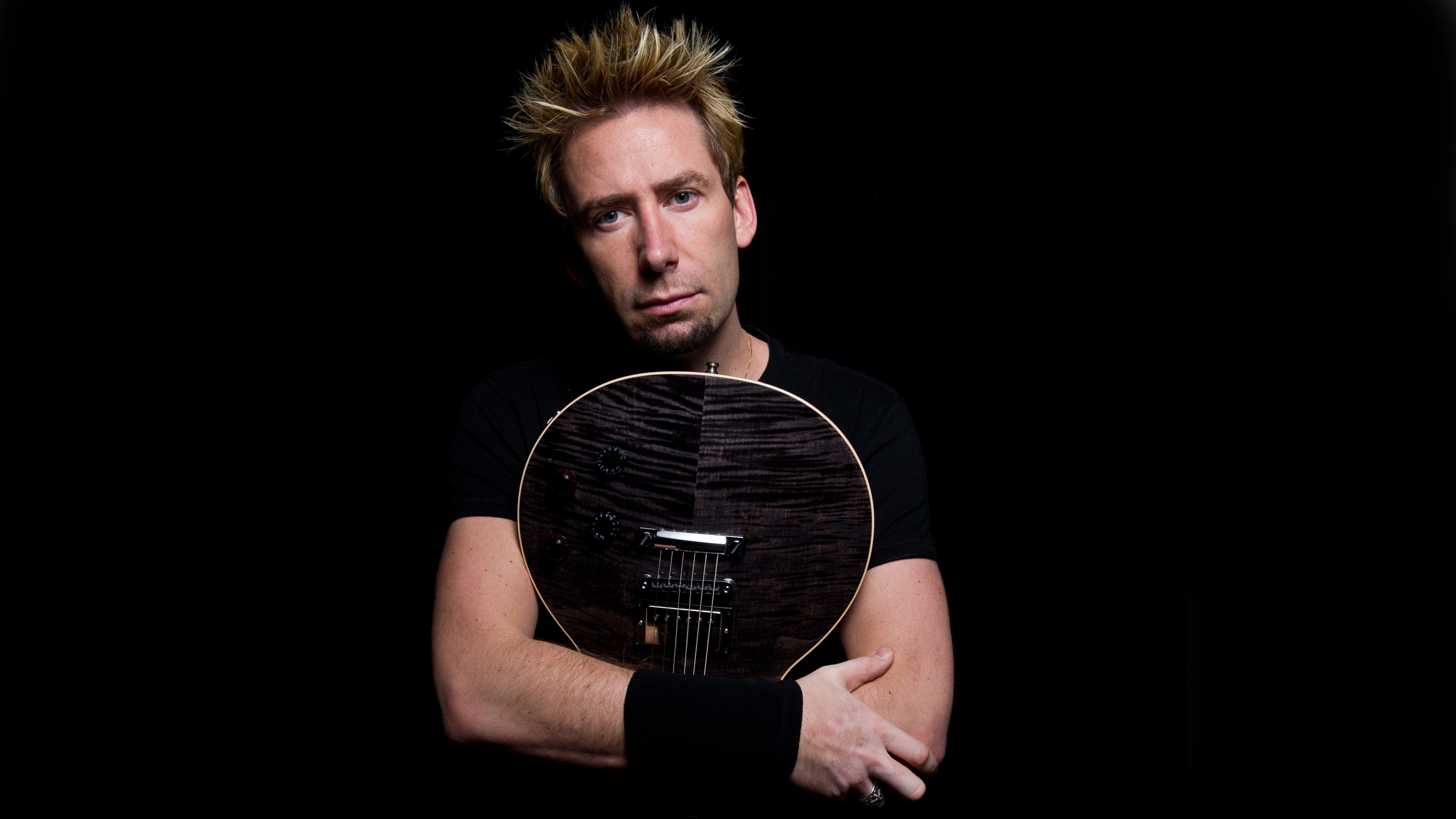
While hipster acceptance may still be a lifetime or two away, you’d think that fellow musicians would take a more even-handed approach towards the band. It seems you’d be wrong.
There is so much of that unhealthy negativity – you can’t let it bleed into you
Ryan Peake
“This singer/guitar player from what was at the time a big band in Canada was talking to my friend at a bar in Vancouver,” Chad says with a wide smirk. “My buddy asked him about Nickelback, and this guy said, ‘Well, that’s not really art, it’s just commercial music. What I do is I make art.’ So, my buddy says, ‘Oh, so what you’re telling me is that nobody is really interested in buying your art; they’re more interested in buying their commercial music?’ Music is music. You can call it art, therapy or whatever you want, but at the end of the day, it’s just music.”
But will Chad and Ryan’s commitment to Nickelback remaining a hard-rock riff-spitting machine bring them the respect they deserve?
“I’d like that to be the case, but it really doesn’t matter,” Ryan says. “I don’t know what we can do – this is what we do, and I’m not going to listen to it and it’s not going to enter into what we do creatively as guitarists, because it’s not healthy. You have to tune it out because there is so much of it, there is so much of that unhealthy negativity – you can’t let it bleed into you. If we stay the course, I can sleep at night.”
Whether or not the pair get the dues they deserve as guitarists, you can be sure that one thing will remain: Chad and Ryan will keep their heads down and carry on knocking out the riffs. There are no curveballs on the horizon here, and they’re not changing for anybody. “I don’t see us introducing a horn section any time soon,” Chad laughs. “We’ll keep doing what we’ve been doing – strumming away on our guitars, writing songs, and if that keeps us happy, hopefully it will keep our fans happy.”
- Nickelback's 10th album Get Rollin' is out 18 November.
“Every note counts and fits perfectly”: Kirk Hammett names his best Metallica solo – and no, it’s not One or Master Of Puppets
“I can write anything... Just tell me what you want. You want death metal in C? Okay, here it is. A little country and western? Reggae, blues, whatever”: Yngwie Malmsteen on classical epiphanies, modern art and why he embraces the cliff edge









